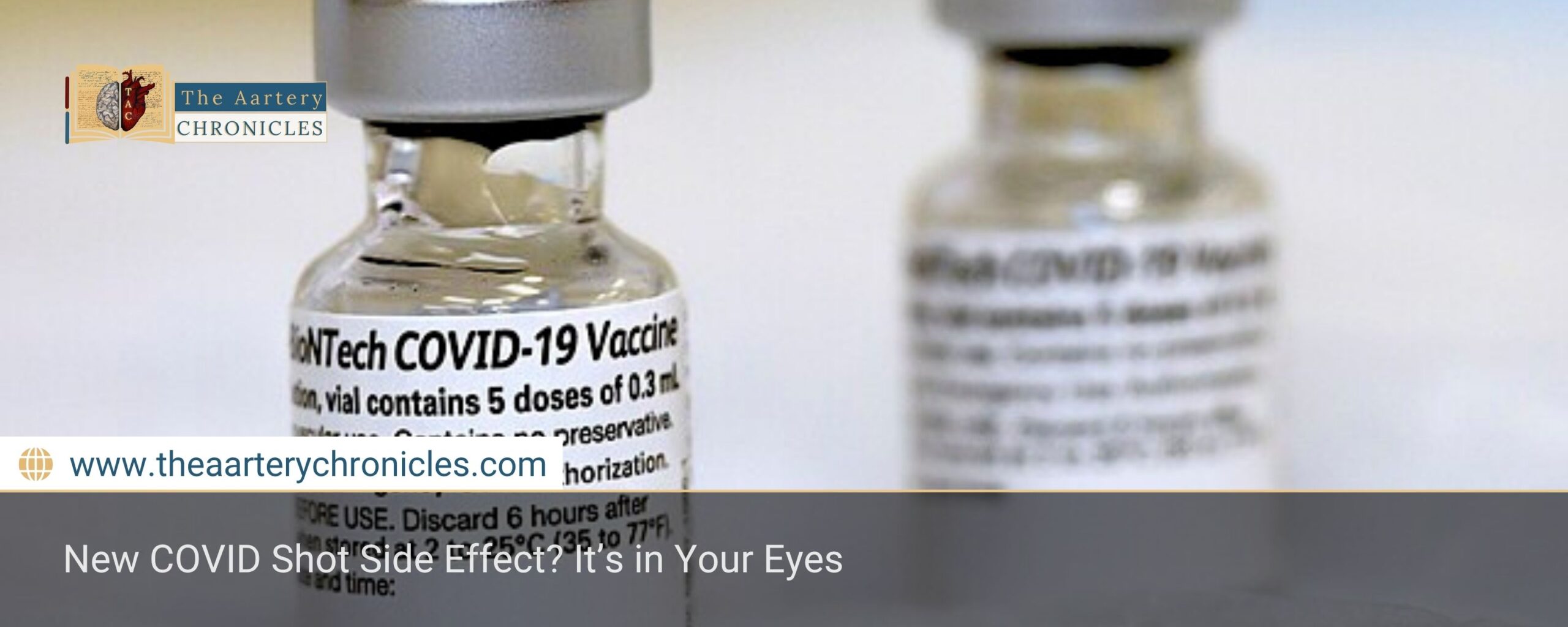

New COVID Shot Side Effect? It’s in Your Eyes
A recent study has raised some concerns about the possible effects of the Pfizer-BioNTech COVID-19 vaccine on eye health, specifically the cornea, the clear outer layer of the eye. While the findings are not a cause for alarm, they suggest that people with certain eye conditions may need extra monitoring after vaccination.
What the Study Found
Conducted by researchers in Turkey and published in the journal Ophthalmic Epidemiology, the study examined the eyes of 64 patients before and after receiving two doses of the Pfizer vaccine. Using advanced imaging tools like Sirius corneal topography and specular microscopy, scientists noticed several subtle changes in the cornea’s structure.
One key finding was a slight increase in corneal thickness, from an average of 528 micrometres to 542 micrometres, around a 2% rise. The endothelial cell count (which helps keep the cornea clear) dropped by about 8%, going from 2,597 to 2,378 cells per square millimetre.
These changes were still within the normal range for healthy individuals. However, experts noted they could be more concerning for people with pre-existing eye problems, such as those who have had corneal transplants or suffer from conditions like Fuchs’ dystrophy.
Signs of Stress in Corneal Cells
The study also highlighted signs that the corneal cells may be under mild stress. There was a small but measurable increase in cell size variation, which indicates that the endothelial layer may not be functioning as efficiently. The percentage of cells maintaining a healthy hexagonal shape also decreased slightly, from 50% to 48%. These shapes are important for maintaining corneal strength and clarity.
Although none of the participants experienced any loss of vision, these changes suggest that long-term eye health could be affected if similar patterns continue or worsen over time.
Should People Be Worried?
Importantly, the researchers do not recommend stopping vaccination based on these results. They emphasised that the changes observed could be temporary and related to inflammation or immune response, which often happens after any vaccine.
Still, they recommend that people with low endothelial cell counts or a history of corneal surgery should have their eyes monitored more closely after getting vaccinated. This is especially relevant if future research confirms any lasting impact on eye health.
Rare Vaccine Side Effects Are Being Studied
This study adds to ongoing research into rare side effects of mRNA vaccines like Pfizer’s. While most people tolerate the vaccine well, previous concerns have included rare cases of heart inflammation (myocarditis and pericarditis), especially in younger males.
The researchers plan to continue monitoring the study participants to see whether these early corneal changes resolve on their own or develop into more significant issues over time.
Conclusion
For most healthy individuals, the Pfizer COVID-19 vaccine remains safe and effective, with no immediate threat to vision. However, people with existing eye conditions should consider regular eye checkups following vaccination, especially if they experience vision changes or have a history of corneal problems.
As always, speak with your healthcare provider if you have specific concerns about your eye health or vaccine safety.
Source: Inputs from various media Sources

Priya Bairagi
Reviewed by Dr Aarti Nehra (MBBS, MMST)
I’m a pharmacist with a strong background in health sciences. I hold a BSc from Delhi University and a pharmacy degree from PDM University. I write articles and daily health news while interviewing doctors to bring you the latest insights. In my free time, you’ll find me at the gym or lost in a sci-fi novel.








